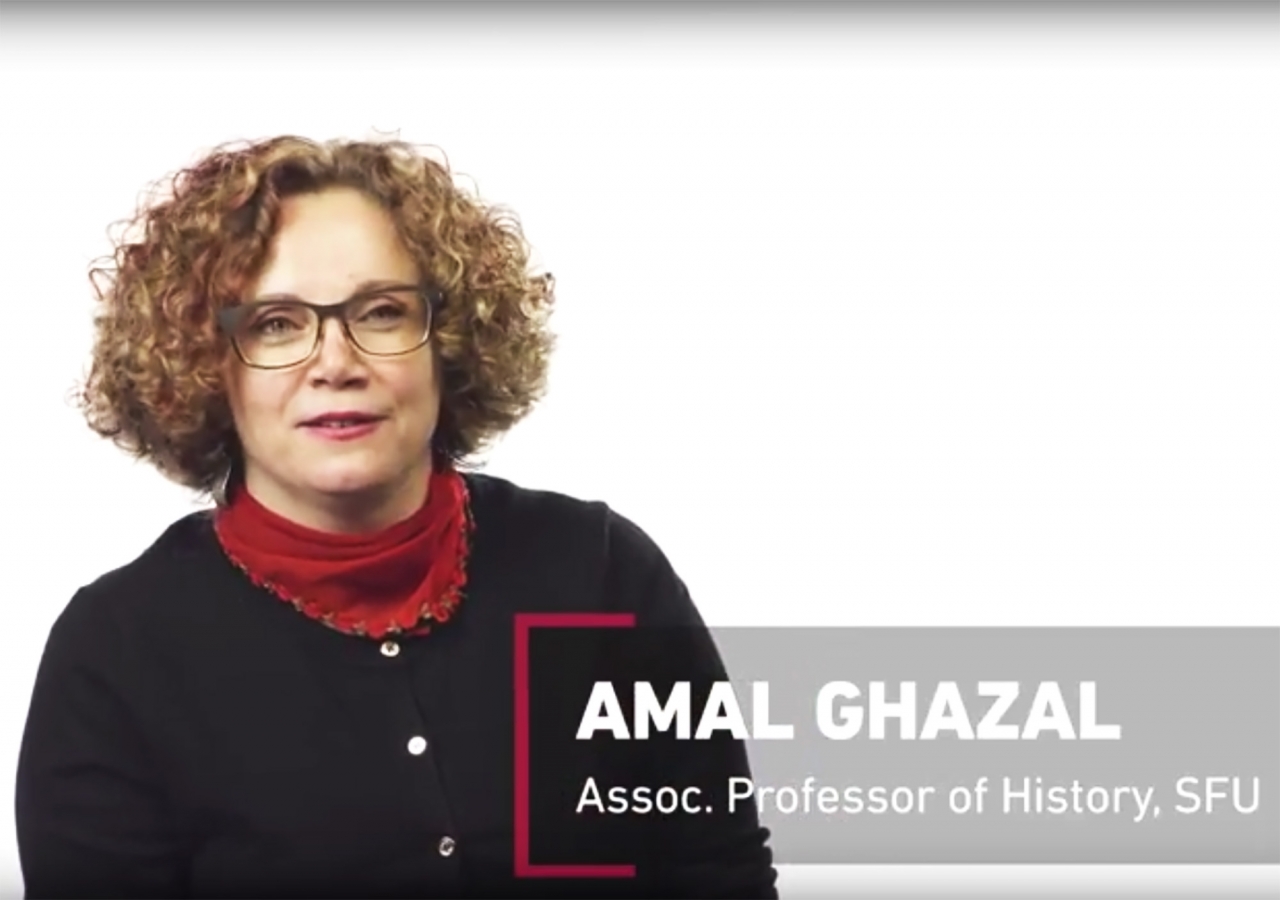Ghazal’s talk was part of the 2018 Ismaili Centre Conversations series on citizenship, identity, and religion. The series will also feature UBC Professor Peter Dauvergne in February and Vancouver-based architect Farouk Noormohamed in March. Amyn Sajoo, professor at SFU’s Centre for the Comparative Study of Muslim Societies and Cultures, is hosting the conversations.
Born and raised in Lebanon, Ghazal is the author of Islamic Reform & Arab Nationalism: Expanding the Crescent from the Mediterranean to the Indian Ocean, 1880s-1930s. She shared her perspective on memory, identity, and belonging through her own research on the origins of Zanzibar’s culture.
“Before multiculturalism became a thing, [Zanzibar was] perhaps one of the most multicultural locations in the world,” she said, explaining that Muslims, South Asians, Arabs, Persians, and local African communities all lived there together.
Ghazal observed that Zanzibar’s unique multicultural society emerged organically approximately 100 years ago as the island was an important port. Because it was a trade zone that had a continuous influx of people, a diverse mix of communities ended up settling. The already present Muslim community offered a welcoming and inclusive environment for new arrivals.
“The communities there created a specific type of culture, known as Swahili culture,” she said.
“The Swahili culture teaches us that people can belong together and work together when they protect and feel pride in who they are,” she continued. “Although the Swahili identity is associated with Islam, even non-Muslims had no problem identifying with it. Everybody spoke Swahili.”
She then spoke about the impact British colonialism had on the area: “The colonial hold destabilized a society that was a working society. Not only destabilized it, it really forced it to think about itself in different ways,” she said.
Ghazal explained that when the colonists first arrived in Zanzibar, they did not understand the local culture. ”They were a colonial power and wanted to understand it and shape it,” she said. “And the only way to understand it was to say, ‘You have to be classified in racial terms.’ That was the colonial mind and the colonial policy.”
Asked by an audience member about her own Canadian identity, Ghazal shared her thoughts: “I believe in my Canadian identity,” she said. “I’m in a society that says we’re all the same and we want to work from that platform and we all have equal rights.”
Ghazal elaborated, saying she is against Nationalism, which is about excluding others.
“We have a formula of coexistence and we need to protect it.”
Following Professor Ghazal’s talk, her first appearance at the Ismaili Centre Burnaby, she spoke about her excitement at participating in the Conversations series.
“Sharing experiences is very important for me as a person, as the Director for the Centre, as an academic, as someone who’s interested in those issues we talked about today,” she said.
”I feel that the Ismaili community has been engaging in these issues and also providing an open forum to discuss these issues.”
“I’m an educator, and what I hope to do is to open people’s minds. First, so that we understand what’s going on, but also, people are looking for answers and you never know in what ways you get the answers from the audience.”
The 2018 Ismaili Centre Conversations series will continue with UBC professor Peter Dauvergne on February 17 and architect Farouk Noormohamed on March 17.
Questions, comments, article suggestions? Contact the My Community Editor: [email protected]








